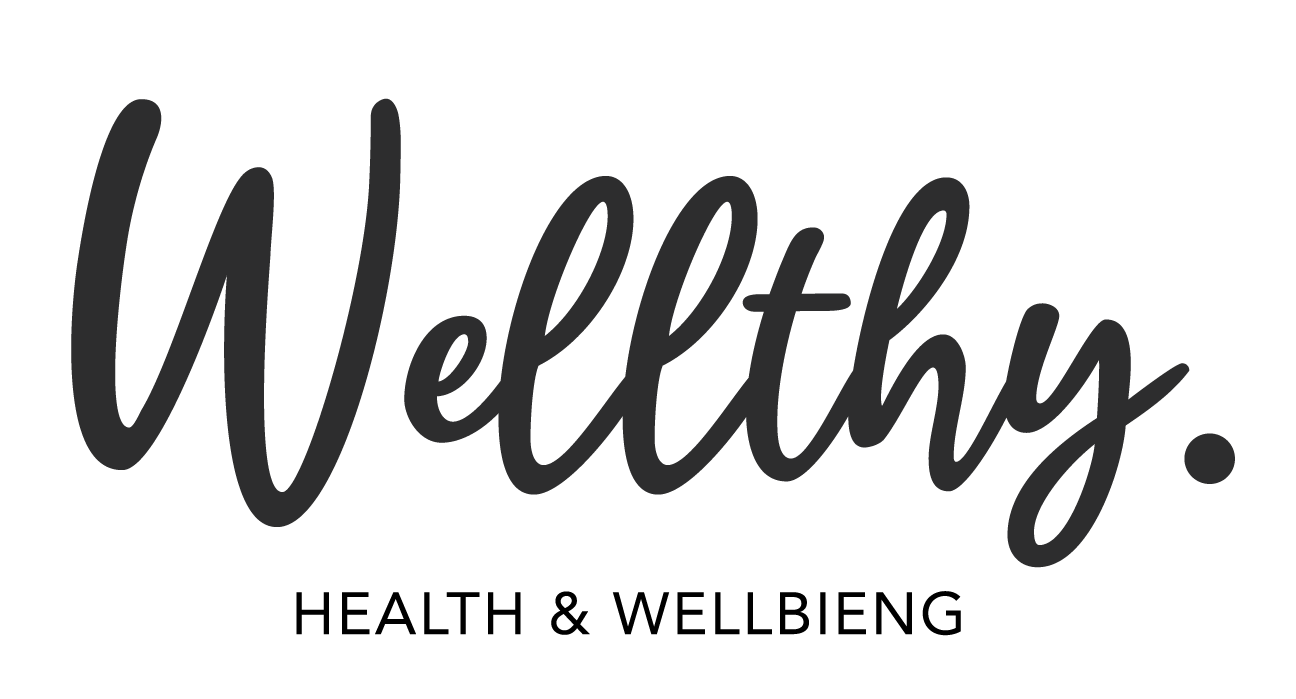Holistic health approaches for fitness instructors go beyond conventional fitness routines, encompassing a multidimensional perspective to nurture overall well-being. Imagine a fitness journey where mindfulness, nutrition, stress management, and community support intertwine seamlessly to empower instructors to thrive both personally and professionally. In this blog post, we delve into the transformative power of holistic health practices in the realm of fitness instruction, offering insights and strategies to enhance the holistic well-being of fitness professionals.
Integrating Mindfulness Practices Into Fitness Classes
In the world of fitness instruction, incorporating mindfulness practices can significantly enhance the well-being of both instructors and participants. By integrating mindfulness techniques into workout routines, fitness instructors can create a more holistic health experience for their clients.
Benefits of Mindfulness for Fitness Instructors
-
Improved Focus: Mindfulness practices help fitness instructors stay present and focused during classes, leading to better instruction and engagement.
-
Stress Reduction: Mindfulness techniques can reduce stress levels, allowing instructors to approach classes with a clear mind and positive energy.
-
Enhanced Connection: By practicing mindfulness, instructors can establish a deeper connection with their clients, creating a more supportive and empathetic environment.
Techniques to Incorporate Mindfulness During Workouts
-
Breath Awareness: Encourage participants to focus on their breath during exercises, promoting relaxation and mindfulness.
-
Body Scan: Guide clients through a body scan meditation at the beginning or end of classes to promote body awareness and relaxation.
-
Intention Setting: Invite participants to set an intention for their workout, fostering mindfulness and a sense of purpose during the session.
-
Mindful Movement: Encourage slow, deliberate movements during exercises to help participants connect mind and body.
By incorporating these mindfulness practices into fitness classes, instructors can elevate the overall experience for their clients and deepen the impact of their workouts.
For more information on mindfulness techniques in fitness instruction, check out this article on Mindful.org.
The Role of Nutrition in Holistic Health for Fitness Professionals
Nutrition plays a crucial role in the holistic well-being of fitness professionals, as it directly impacts energy levels, performance, and overall health. By understanding the significance of nutrition and implementing healthy eating habits, fitness instructors can optimize their physical and mental well-being.
Impact of Nutrition on Overall Wellbeing
-
Energy Levels: Consuming a balanced diet rich in nutrients provides fitness instructors with the energy needed to lead classes effectively and engage with clients.
-
Recovery: Proper nutrition supports muscle recovery and reduces the risk of injuries, allowing instructors to maintain a consistent workout schedule.
-
Mental Clarity: Nutrient-dense foods support brain function and cognitive performance, enabling instructors to stay focused and attentive during classes.
Nutritional Guidelines for Fitness Instructors
-
Balanced Diet: Encourage the consumption of a variety of fruits, vegetables, lean proteins, whole grains, and healthy fats to ensure a well-rounded diet.
-
Hydration: Stress the importance of staying hydrated throughout the day and during workouts to support physical performance and recovery.
-
Meal Planning: Advocate for meal planning and preparation to avoid relying on unhealthy convenience foods, promoting sustained energy levels.
-
Supplementation: Discuss the role of supplements, such as vitamins and minerals, in complementing a healthy diet to meet specific nutritional needs.
By prioritizing nutrition and following these guidelines, fitness instructors can enhance their overall health, performance, and longevity in their profession.
For additional resources on nutrition for fitness professionals, visit ACE Fitness for expert advice.
Building Resilience and Managing Stress
In the dynamic and demanding field of fitness instruction, building resilience and effectively managing stress are essential for the well-being of fitness professionals. By implementing strategies to cope with stress and prioritizing self-care, instructors can maintain mental and emotional balance in their roles.
Stress Management Strategies for Fitness Instructors
-
Exercise Regularly: Engaging in physical activity beyond teaching classes can help reduce stress levels and boost mood.
-
Mindfulness Practices: Incorporating mindfulness techniques, such as meditation or deep breathing exercises, can promote relaxation and stress relief.
-
Healthy Boundaries: Establishing clear boundaries between work and personal life is crucial in preventing burnout and maintaining overall well-being.
-
Seeking Support: Encouraging open communication with peers or seeking professional guidance can provide valuable emotional support during challenging times.
Importance of Self-Care in the Fitness Industry
-
Rest and Recovery: Prioritize adequate rest and recovery periods to prevent physical and mental exhaustion.
-
Healthy Lifestyle Choices: Emphasize the importance of nutrition, hydration, and quality sleep in supporting overall well-being.
-
Hobbies and Interests: Engage in hobbies or activities outside of work to promote balance and reduce stress levels.
-
Professional Development: Invest in ongoing learning and development opportunities to enhance job satisfaction and cope with industry challenges better.
By focusing on building resilience, managing stress effectively, and practicing self-care, fitness instructors can cultivate a sustainable and fulfilling career in the fitness industry.
For more insights on stress management and resilience building, visit Harvard Business Review for valuable strategies.
Maintaining Work-Life Balance in the Fitness Industry
Achieving work-life balance is a significant challenge for fitness instructors due to the demanding nature of their profession. However, by implementing strategies to prioritize self-care and establish boundaries, fitness professionals can maintain a healthy equilibrium between their personal and professional lives.
Tips for Balancing Personal and Professional Life
-
Scheduling Breaks: Allocate specific time for breaks throughout the day to recharge and prevent burnout.
-
Setting Boundaries: Clearly define work hours and personal time to ensure separation and avoid overcommitment.
-
Time Management: Prioritize tasks effectively to maximize productivity and create space for personal activities.
-
Delegating Responsibilities: Delegate tasks when possible to lighten workload and reduce stress levels.
Importance of Boundaries and Self-Care Practices
-
Physical Well-Being: Make time for regular exercise and physical activity to boost energy levels and overall health.
-
Mental Health Support: Seek out professional support or counseling to address any mental health concerns or stress-related issues.
-
Social Connections: Nurture relationships with friends and family to maintain social support and connection outside of work.
-
Professional Development: Invest in continuous learning and skill improvement to enhance job satisfaction and personal growth.
By prioritizing work-life balance, setting boundaries, and incorporating self-care practices into their routine, fitness instructors can ensure long-term success and well-being in their careers.
For additional resources on maintaining work-life balance in the fitness industry, visit Forbes for expert insights.
Creating a Supportive Community for Holistic Health
In the realm of holistic health approaches for fitness instructors, building a supportive community can be a game-changer in enhancing overall well-being and professional growth. Establishing connections with like-minded professionals and fostering a network of support can provide valuable resources, motivation, and collaboration opportunities for fitness instructors.
Building a Network of Like-Minded Professionals
-
Joining Professional Groups: Engage in industry-specific professional groups or associations to connect with peers and exchange insights.
-
Attending Workshops and Conferences: Participate in workshops and conferences to expand knowledge, network with experts, and build relationships in the field.
-
Online Communities: Utilize online platforms and social media groups to interact with other fitness professionals, share experiences, and seek advice.
-
Mentorship Programs: Seek mentorship from experienced individuals in the industry to gain guidance, support, and career development opportunities.
Importance of Community in Holistic Wellness Programs for Fitness Instructors
-
Peer Support: Peer support can offer empathy, encouragement, and understanding during challenging times, fostering resilience and growth.
-
Collaborative Opportunities: Working collaboratively with other professionals can lead to new ideas, partnerships, and innovative approaches to holistic health practices.
-
Accountability and Motivation: A supportive community can provide accountability and motivation, helping fitness instructors stay inspired and committed to their goals.
-
Continued Learning: Engaging with a community of peers can facilitate continuous learning, skill improvement, and access to emerging trends in the industry.
By actively participating in and contributing to a supportive community, fitness instructors can enhance their holistic health approaches, professional development, and overall well-being.
For further insights on creating a supportive community in the fitness industry, explore Healthline's community forums.
Wrap-Up: Embracing Holistic Health Approaches as a Fitness Instructor
As a fitness instructor, incorporating holistic health approaches into your practice can transform not only your physical well-being but also your mental and emotional wellness. By embracing a holistic approach, you can create a more balanced and fulfilling experience for yourself and your clients.
Reflecting on the Journey
-
Mindfulness Practices: Take time to reflect on how mindfulness techniques have enhanced your focus and connection with clients during workouts.
-
Nutritional Habits: Evaluate the impact of improved nutrition on your energy levels and overall performance as a fitness professional.
-
Stress Management: Consider the strategies you've implemented to manage stress and build resilience in a demanding industry.
-
Work-Life Balance: Reflect on the importance of setting boundaries and prioritizing self-care in maintaining a healthy work-life balance.
-
Community Engagement: Appreciate the value of a supportive community in fostering growth, collaboration, and continuous learning in the fitness industry.
Moving Forward
-
Continuous Learning: Stay committed to ongoing education and skill development to adapt to industry changes and enhance your expertise.
-
Self-Care Commitment: Prioritize self-care practices to nurture your physical, mental, and emotional well-being for long-term sustainability.
-
Community Involvement: Continue to engage with a supportive community to exchange ideas, seek inspiration, and grow both personally and professionally.
Embracing holistic health approaches as a fitness instructor is not just a trend but a sustainable lifestyle choice that can empower you to thrive in your career while promoting wellness in all aspects of your life.
Explore more holistic health resources and professional development opportunities with American Council on Exercise (ACE).
Embracing a Holistic Approach to Health and Wellness
In the realm of fitness instruction, adopting holistic health approaches is not just a trend but a fundamental principle for fostering overall well-being. Fitness instructors who prioritize holistic health can create a more enriching and sustainable experience for themselves and their clients.
The Mind-Body Connection
-
Mindfulness Practices: Cultivating mindfulness techniques can enhance focus, reduce stress, and promote a deeper connection with clients.
-
Nutritional Awareness: Understanding the impact of nutrition on energy levels, recovery, and cognitive function is essential for optimal performance.
-
Stress Management: Implementing stress management strategies is crucial for maintaining resilience and mental well-being in a demanding profession.
Achieving Balance and Harmony
-
Work-Life Integration: Strive to establish a harmonious balance between professional responsibilities and personal well-being to prevent burnout.
-
Self-Care Rituals: Incorporate self-care rituals into your daily routine to nurture physical, mental, and emotional health.
-
Community Support: Engage with a supportive community of like-minded professionals to exchange ideas, seek advice, and foster growth.
By embracing a holistic approach to health and wellness, fitness instructors can not only elevate their own quality of life but also positively impact the lives of those they guide on their fitness journeys.
For further insights on holistic Health practices, visit National Institute of Health – National Center for Complementary and Integrative Health.
FAQs on Holistic Health Approaches for Fitness Instructors
How can mindfulness practices benefit fitness instructors in their teaching?
Mindfulness practices can enhance focus, presence, and connection with clients during workouts, leading to a more engaging and effective fitness instruction experience.
What role does nutrition play in the holistic well-being of fitness professionals?
Nutrition is vital for sustaining energy levels, supporting muscle recovery, and promoting mental clarity, all of which are essential for the overall health and performance of fitness instructors.
Why is stress management important for fitness instructors?
Effective stress management strategies help fitness instructors build resilience, cope with demanding schedules, and maintain mental well-being in a high-pressure industry.
How can fitness instructors achieve a healthy work-life balance?
Establishing boundaries, prioritizing self-care, and incorporating breaks into daily routines are key strategies for fitness instructors to achieve a harmonious work-life balance.
Why is community support valuable for fitness instructors practicing holistic health approaches?
Engaging with a supportive community of peers provides opportunities for collaboration, growth, and shared learning, enhancing the holistic well-being of fitness instructors in their professional journey.


